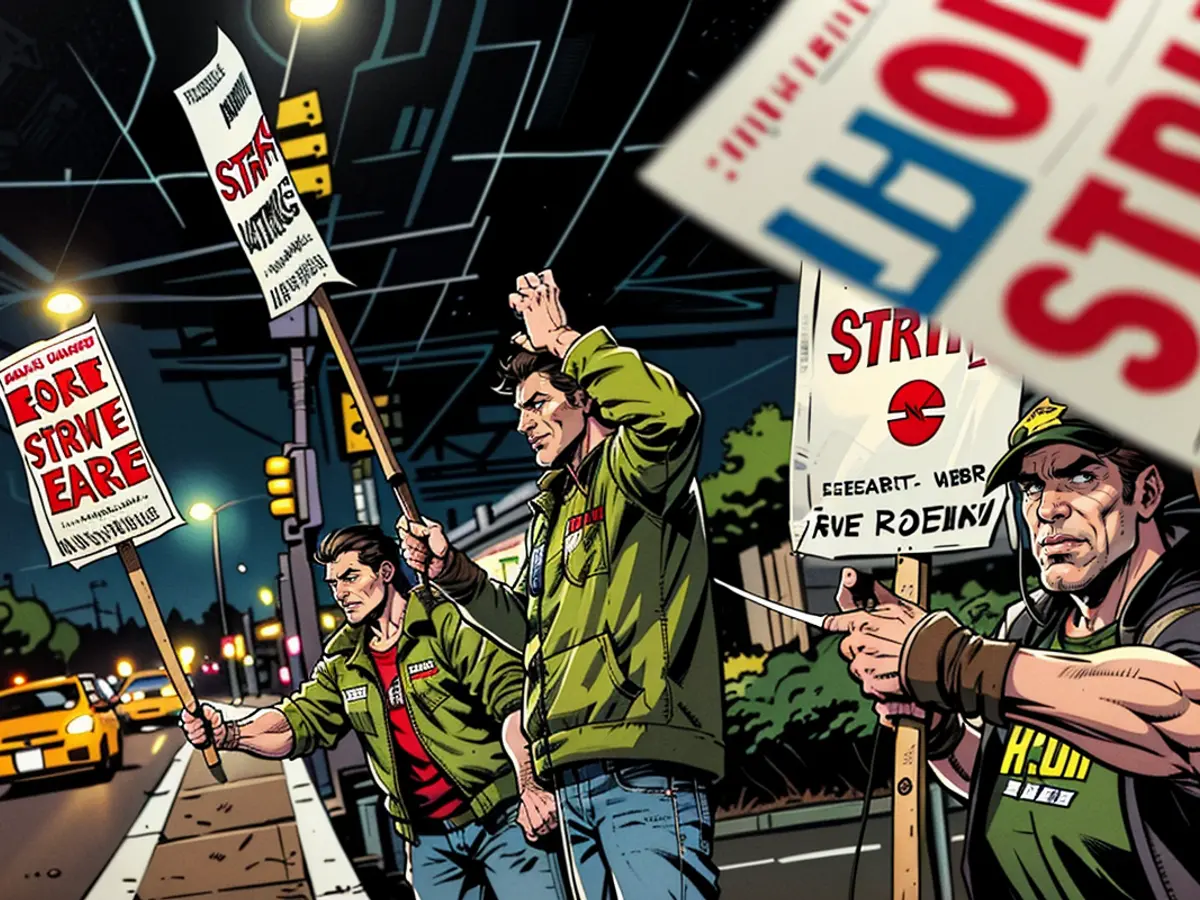Boeing's recovery process becomes more complex due to these reasons.
Apart from the series of safety incidents that has tarnished the company's reputation, raised concerns about quality, instigated numerous investigations, and led to a reshuffle of executives, including a new CEO, the aircraft manufacturer is grappling with a costly and prolonged strike at its Washington state facilities.
- The International Association of Machinists recently rejected Boeing’s proposal to resume work after six weeks of contentious strike action.
- The strike is costing the company around $1 billion every month, according to an estimate from Standard & Poor’s.
- Boeing announced a $6 billion loss in the third quarter, one of the largest quarterly losses in its history, last week.
- The company also warned investors that losses will persist for at least another year.
New CEO David Calhoun stated that ending the strike — which has virtually halted Boeing’s commercial airplane production — is a top priority and a key to addressing its financial issues.
However, with 64% of IAM members voting against the company’s latest proposal, restoring the fortunes of this once-proud American company seems increasingly challenging.
Focus on profits results in setbacks
Issues with Boeing’s aircraft quality and safety have been a concern for the past five years. Several company insiders and external analysts attribute these problems to Boeing compromising on quality and safety to prioritize speed of production.
Now, the demands Boeing made to its largest union during periods of financial prosperity to relinquish a pension plan or risk losing their jobs appear to be fueling dissent among employees and prolonging the strike.
The proposal rejected in the recent union vote would have provided striking workers with an immediate 12% wage increase, further wage hikes amounting to 23% over the next four years, a $7,000 bonus upon ratification, and improved contributions to their 401(k) plans, along with some job security guarantees.
However, it did not restore the traditional pension plan that union members at the company lost a decade ago, at a time when the company was financially secure but sought even more from its employees. This loss, from a time of financial prosperity but increased expectations from workers, still foments an anger that was evident in the vote.

“This membership has been through a lot,” Jon Holden, president of the IAM’s largest local at Boeing and its chief negotiator, said during a press conference shortly after the vote was announced. “There are deep wounds caused by some concessions and threats of job loss. Our members haven’t forgotten that.”
Importance of traditional pension plans
Traditional pensions, also known as defined benefit plans, provide a fixed amount every month to retirees or their spouse as long as they live. If the plan’s assets lose value due to market or other issues, the company is responsible for covering the gap. In contrast, 401(k) plans, known as defined contribution plans, place investment risk on the retiree, increasing the possibility of outliving one’s assets.
The desire to transfer risk from companies to employees and improve the bottom line has led most private sector defined benefit plans to disappear over the last 45 years. Defined benefit plans are now only available to about 8% of US workers, according to data from the Employee Benefit Research Institute, down from 39% in 1980.
Traditional pension plans are a major factor in retirement security, Holden said. “It wasn’t right to take it away. It’s a just cause to seek its return,” he remarked.
Challenges in reinstating pensions
No union that has lost a traditional pension plan has ever managed to secure its reinstatement. The United Auto Workers union lost pension plans for employees hired at General Motors, Ford, and what was then known as Chrysler since 2007.
When it went on strike against GM, Ford, and Chrysler’s successor Stellantis last year, one of its demands was the return of those pension plans. However, despite securing record contracts from all three companies, it did not secure the pension plans. Ford CFO John Lawler referred to the traditional pension plans sought by the union as “a plan of the past” during a press conference during the strike.

Those three automakers reported record profits. Boeing, however, has reported core operating losses of $39.3 billion since 2019, following two fatal crashes of its 737 Max that led to a 20-month grounding of its bestselling plane and losses in almost every quarter since then.
Boeing categorically ruled out the reinstatement of pension plans in a statement last week, ahead of the proposal the union members recently rejected. “There is no scenario where the company reactivates a defined-benefit pension for this or any other population,” the company said. “They’re excessively expensive and the reason why virtually all private employers have transitioned away from them to defined-contribution plans.”
Potential solutions
Holden did not dismiss the possibility of reaching an agreement that does not include a traditional pension plan, expressing openness to explore a hybrid plan that offers some form of defined benefit to members. However, he stated that Boeing has yet to show interest in reintroducing a pension plan.
“If they’re unwilling to provide it, then we have to find something that replaces it,” he said. “So it comes down to wages, it comes down to 401(k) plans. It comes down to potential other defined benefit options, which we are open to considering. We’re going to put all our cards on the table, be creative.”
Boeing chose to remain silent on Thursday regarding the union vote. Previously, Ortberg, who took over as CEO on August 8, expressed that resolving the strike was top priority, stating this on Wednesday.
During the announcement of the third-quarter results, but prior to the completion of the vote count, Ortberg pointed out a necessity for Boeing to transform its company culture. He also voiced his desire to rectify the union's relationship with the company. However, he acknowledged the challenge in implementing this cultural shift, which he failed to specify, and warned that it would take years to materialize.
"We've reached a critical juncture," he mentioned. "Our company's trust has significantly diminished." He added, "We're burdened with excessive debt. We've suffered numerous setbacks in performance across various sectors, which has left many of our clients dissatisfied. Our employees yearn to return to the illustrious company they once knew."

- The ongoing strike at Boeing's facilities is not only affecting its commercial airplane production but also straining the company's finances, with estimates suggesting a monthly cost of $1 billion.
- Despite Boeing's proposal offering significant wage increases, bonuses, and improved retirement benefits, 64% of union members voted against it, indicating their dissatisfaction with the company's past actions and the loss of their traditional pension plan.








